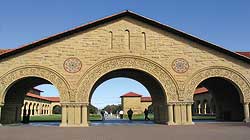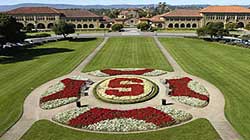|
What is the most important piece of advice you would give an Indian student who wants to apply to a top U.S. university?
I think it is most important to be what you are.
-
The application material should always reflect the truth and should not have any hyperbole in the statement of purpose.
-
Avoid making generic remarks in your statement.
-
Be specific. Every word and sentence should be purposeful and must count.
-
Try and cut down on the length of the statement of purpose and any other document you need to compose and submit, like the personal history statements, resumé, etc. Ideally, I think the statement of purpose must not be more than 1,000 to 1,200 words. The shorter it is, the better.
-
Avoid using sensational words. It is okay to write in simple English as long as it conveys the message effectively.
-
Try not to hype up people you have worked with and say that they have left an indelible mark and all that. Instead, you could just say that you have worked with that person and what you got out of the experience and how you plan to apply it in the future.
-
There should never be a single sentence that only plays up the experience without saying what you did and what you learnt.
-
It is also not necessary to say things like, “Ever since I was a toddler I always wanted to be an aerospace or nuclear scientist or dreamt of studying in a great university.” It is okay to take these decisions later in life and be inspired toward a particular career while doing your Bachelor’s.
 |
 |
The Stanford University Oval and front entrance
Photographs by LINDAA. CICERO/Stanford News Service |
Stanford University’s main quad |
What do you think these universities look for in an application?
I think every university looks for genuineness and a sense of purpose in what the student wants to do. I believe that you must give the university a reason to believe that by giving a particular student an opportunity, he would be able to fulfill his goals and the university in turn would also be benefited by having his or her intellectual capital.
How were you able to find out what your university wanted?
By going through the university and program Web site. It is also important to see if any of the professors’ work interests you and if yes, you could probably state that in the statement of purpose.
What did you do to make your application strong?
My practical experience and strong, credible references. The references should be from people you have worked with and done some good, quality work which has practical applications. Another important aspect is that there should be continuity in the work and it should not be like you work in a particular field today and another interesting field tomorrow. All the work that we do should have some kind of linkage to our area of interest.
What are the most common mistakes Indian students make while applying to U.S. universities and how can they avoid them?
-
Writing and submitting references themselves instead of the professor or supervisor doing it for them. If we have worked with someone, have done credible work with him and if he agrees to write a reference for you than he would definitely not mind filling it up for 10 universities or whatever may be the number.
-
Not writing their statements of purpose themselves. We must always realize that nobody can speak for us the way we could do it ourselves.
-
Giving too much emphasis to the GRE score. I think it is just the quantitative score and the analytical writing analysis that matters.
-
Sending mails to professors after submitting the application and while waiting for the decision. It does not always work and may create a negative impression about you.
What preparations should students make before applying to a top university?
-
Submit only the necessary documents.
-
Give thereferers enough time to write a reference for you.
-
Try and get the most important referers under whom the student would have done credible work.
-
The stature of the referer would not matter if the student has not worked with him.
-
Ensure that all required documents reach the admissions department in time.
-
It does not matter when you complete your application as long as it is done before the last date.
Why did you choose Stanford University?
-
I think Stanford is one of the best places in the world for applied and practical engineering.
-
I always wanted to be in the automotive sector and I think the area surrounding Stanford is full of automotive companies doing cutting edge research in my field of interest.
—Courtesy SPAN
|